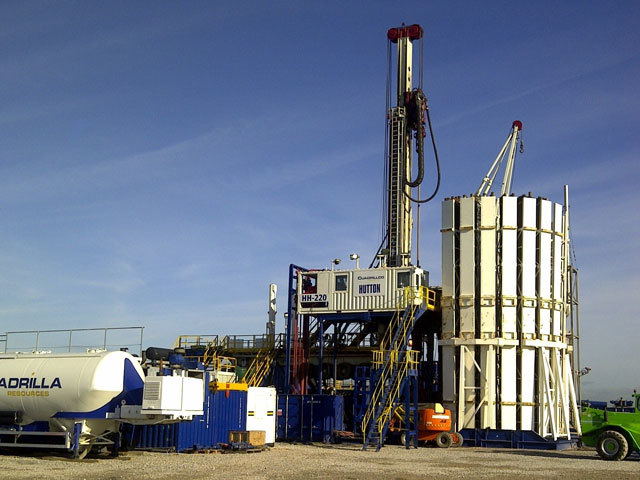
British scientists are spearheading a European project to identify methane emissions that could have major implications for fracking.
Experts from the National Physical Laboratory (NPL) will help develop new techniques for detecting and measuring “fugative” methane released as a by-product by different industries.
Hydraulic fracking, the extraction of natural gas from shale rocks, is known to generate methane, but it is not clear how much.
Reported leakage rates have ranged from 1.7% to 7.9% of total gas produced, while most experts agree on a figure based on sparse US data of around 2% to 3%.
The £1 million FuME (Fugitive Methane Emissions) project will find ways to get a more accurate picture of fracking methane emissions to help both governments and the industry.
Methane is a potent greenhouse gas with many times more atmospheric warming power than carbon dioxide.
Around two thirds of global methane is believed to come from man-made sources, such as burning fossil fuels, accidental releases from natural gas drilling, and large-scale cattle ranching.
The 2.5 year FuME project will produce guidelines for each of the industries it covers. Besides fracking, they include waste water treatment and national grid power transmission. A number of scientific papers will also be published.
The NPL, based in Teddington, south-west London, is a world leader in the science of making accurate measurements.
Jane Burston, head of the laboratory’s Centre for Carbon Measurement, said: “Methane plays a big role in global warming. The IPCC (Inter-Governmental Panel on Climate Change) recently updated their estimate of methane’s global warming potential from 72 times that of carbon dioxide to 86 times over a 20 year time period. So it’s a critical area to tackle for climate change mitigation.
“At the same time many opportunities to reduce fugitive losses are profit-making or cost neutral, so it’s a potential business opportunity too.”
Industries such as fracking can benefit from better detection of methane emissions by capturing the gas and selling it, making methane control profitable.
Mary Ritter, chief executive of Climate-KIC, the European public-private partnership funding the project, said: “Methane is a significant driver of climate-change and a valuable resource. Fugitive methane emissions measurement services will help a wide range of operators to better manage their processes and increase their profitability.”
Francis Egan, chief executive of Cuadrilla Resources, which is pioneering fracking in the UK, said: “We are delighted to partner with Climate-KIC on this important quest to validate a new generation of measurement technologies.”
Recommended for you
